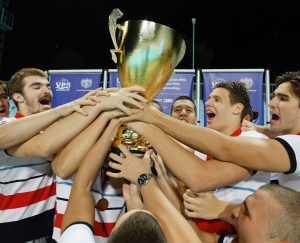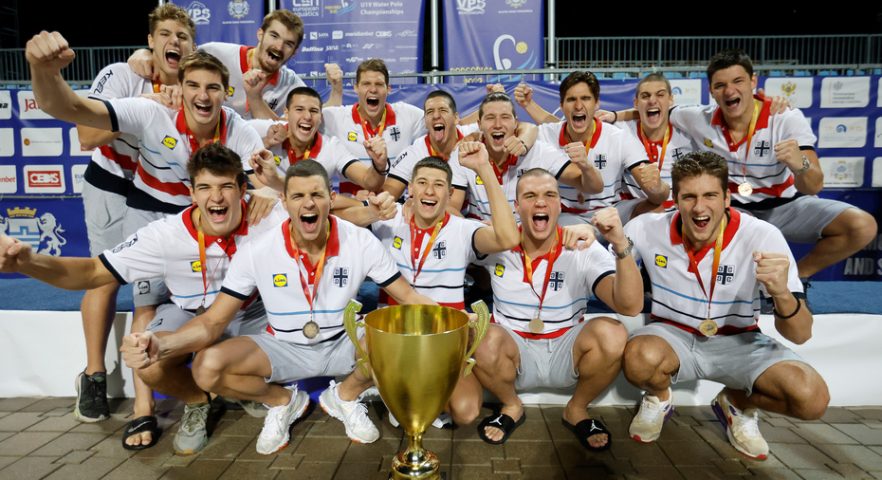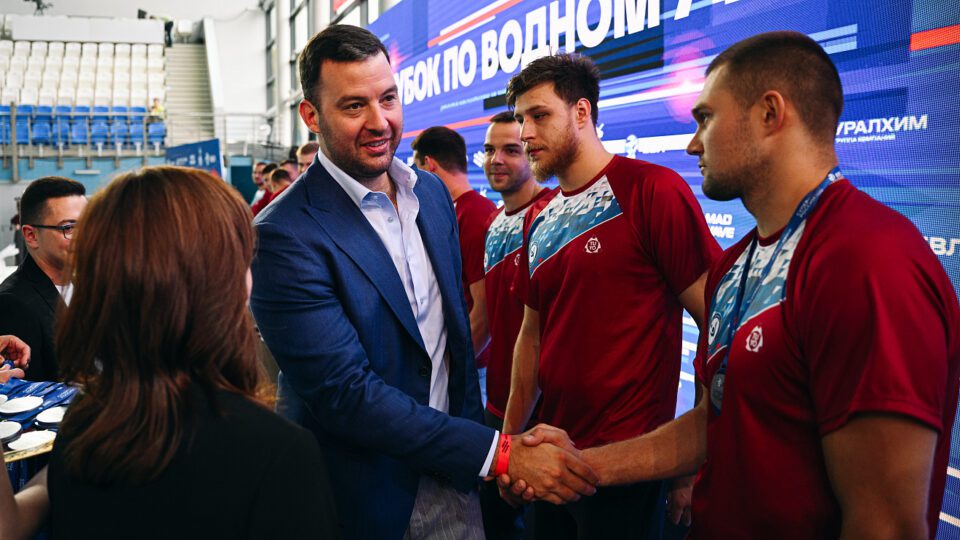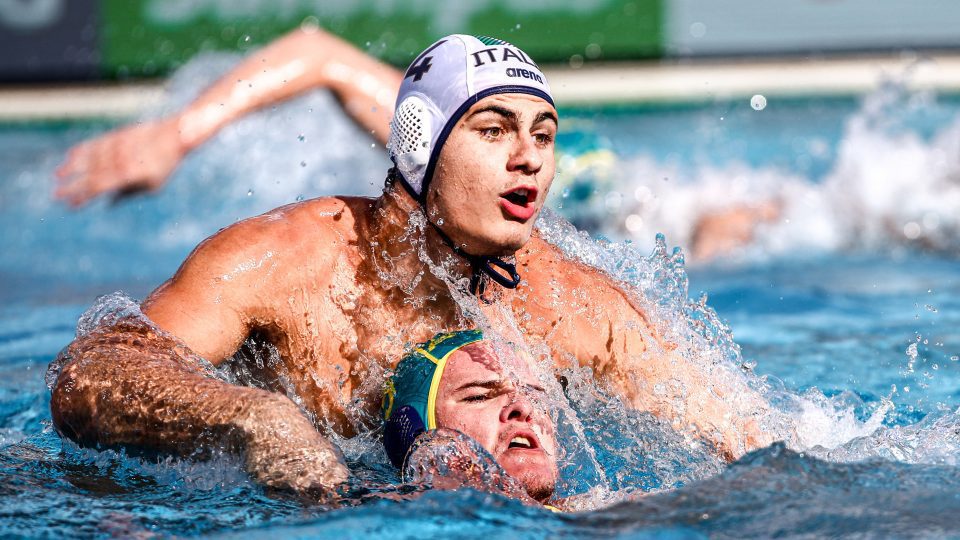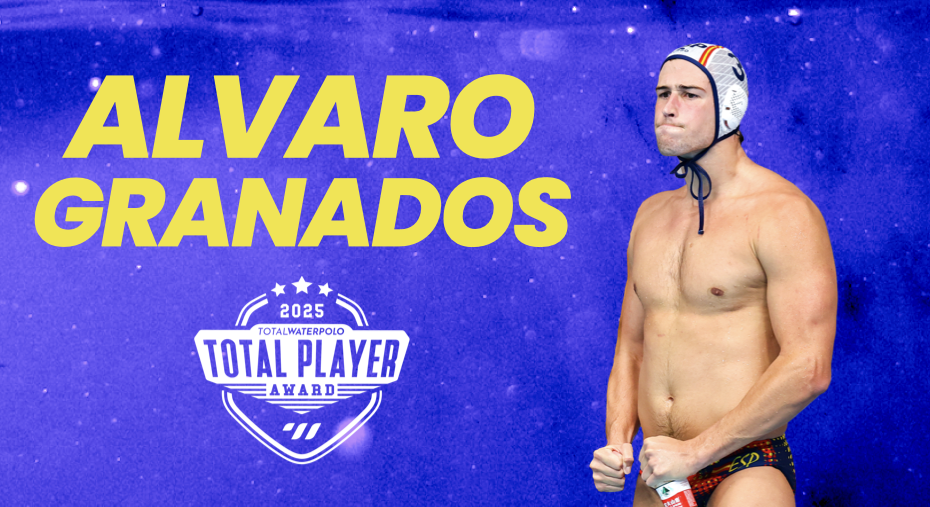Serbia is a new European champion for juniors.
The European Men’s U19 Championships in Podgorica ended with a thrilling final between Serbia and Spain.
Serbia celebrated a narrow 9:8 win in a match with a tense finish, with many exclusions. Serbia’s good defense with a man-down made the difference in crucial moments.
Serbia won its fourth title as the European champion for juniors (2006, 2014, 2016, 2022). The Serbian water polo players were European junior champions seven times as members of the national teams of Yugoslavia and Serbia and Montenegro (the full list of the medal winners is at the end of the article).
Serbia was one of the youngest teams in Podgorica. Almost all players are from the U18 national team that won silver at the World Championships in Belgrade in August. Only captain Vasilije Martinovic, Srdjan Baucalo, and Veljko Krstic (the latter didn’t play in the final) are older than 18 years, so most of the players clinched two big medals within several weeks.
Day 8, results – Final: Serbia – Spain 9:8, 3rd-place match: Hungary – Greece 10:7, 5th-place match: Croatia – Italy 14:11, 7th-place match: Montenegro – Germany 13:12. Reports of the games for standings between 3rd – 8th place – HERE
Final standings: 1. Serbia, 2. Spain, 3. Hungary, 4. Greece, 5. Croatia, 6. Italy, 7. Montenegro, 8. Germany, 9. Netherlands, 10. Malta, 11. France, 12. Georgia, 13. Turkey, 14. Romania, 15. Czech Republic, 16. Slovakia.

Spain, silver medal
Individual awards – MVP of the tournament: Vasilije Martinovic (SRB), Best goalkeeper: Alejandro Alegre Lopez (ESP), Best scorer: Nicolaos Gkillas (GRE) 26 goals.
For all the results, visit Total Waterpolo Arena
2022 European Men’s U19 Championships, Podgorica, Day 8
Final
Serbia – Spain 9:8 (2:1, 3:3, 2:3, 2:1)
Spain had a minimal 1:0 lead for most of the first quarter, but Serbia had an advantage before the second period. Kojic leveled from the distance, while Kovacevic converted a 6 on 4 for 2:1 in the 8th minute. One of Spain’s two excluded players at that moment was goalkeeper Alegre, so the Serbs mustn’t miss that chance.
Serbia had a 2-goal lead twice in the second period (3:1, 4:2). Spain leveled with two goals within 46 seconds. Valls Ferrer converted a man-up in the 15th minute for 4:4. But, Nikola Kojic beat the buzzer. In the literraly last second of the second quarter, he found the net from six meters and made it 5:4.
The third quarter produced almost the same storyline as the previous one. Serbia doubled its advantage twice (6:4, 7:5), but the Spaniards successfully chased the rival, and leveled at 7:7 in the 23rd minute.
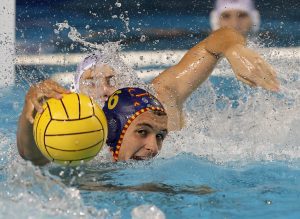
All photos: Total Waterpolo
After three quarters, there was no epilogue in sight.
The teams exchanged goals at the start of the fourth period. Urosevic gave Serbia an 8:7 lead with a man-up, but shortly after Gil Cedo answered with an action goal.
After that, both teams missed a man-up each. Both sides were becoming more and more nervous. Three and a half minutes before the end, after a personal foul of one of Serbia’s players, the Serbs left without head coach Uros Stevanovic, who was red-carded for protest.
But, the Serbs killed that man-up. However, Spain immediately forced another exclusion but failed to score again. Virijevic saved a shot from Ramon Sasen.
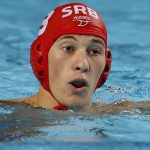
Radoslav Virijevic
Spain paid for two missed chances. The Serbs earned a man-up in the next possession and made no mistake. At 02:02, Vasilije Martinovic scored from the left for 9:8. It turned out that it was the last goal in the match.
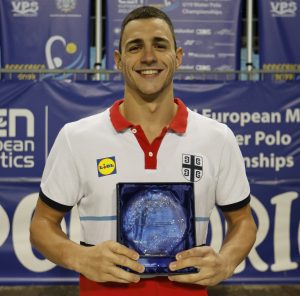
Vasilije Martinovic
Spain failed to convert another man-up in the next attack, but everything was still open.
A minute and 13 seconds from the end, Serbia had a chance to secure a win with an extra player but didn’t score. Everything was practically decided 33 seconds before the end. Castro Fernandez sent the ball slightly above the crossbar, and after that the Spaniards had no chance to level the score.
Serbia celebrated the win with numerous fans who supported them in all matches of the knockout round.
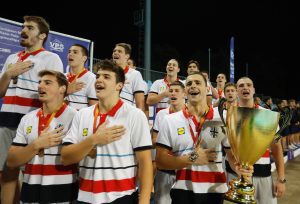
Medal winners
1970 (Rotterdam): 1. USSR, 2. Spain, 3. West Germany
1971 (Barcelona): 1. Hungary, 2. Spain, 3. USSR
1973 (Duisburg): 1. Hungary, 2. USSR, 3. Spain
1975 (Jonkoping): 1. USSR, 2. Spain, 3. Hungary
1976 (Valetta): 1. Italy, 2. Hungary, 3. Spain
1978 (Budapest): 1. USSR, 2. Hungary, 3. West Germany
1980 (Sittard): 1. Spain, 2. USSR, 3. Hungary
1982 (Varna): 1. Italy, 2. Romania, 3. USSR
1984 (Santa Cruz de Tenerife): 1. Italy, 2. Yugoslavia, 3. Spain
1986 (West Berlin): 1. West Germany, 2. USSR, 3. Hungary
1988 (Veenendaal): 1. Yugoslavia, 2. USSR, 3. Hungary
1990 (Varna): 1. Yugoslavia, 2. USSR, 3. Hungary
1992 (Sopron): 1. Hungary, 2. Spain, 3. Greece
1994 (Bratislava): 1. Hungary, 2. Croatia, 3. Spain
1996 (Istanbul): 1. FR Yugoslavia, 2. Hungary, 3. Croatia
1998 (Bratislava): 1. FR Yugoslavia, 2. Italy, 3. Croatia
2000 (Kamen/Lunen): 1. FR Yugoslavia, 2. Greece, 3. Italy
2002 (Bari): 1. FR Yugoslavia, 2. Hungary, 3. Italy
2004 (Valetta) 1. Serbia and Montenegro, 2. Croatia, 3. Hungary
2006 (Oradea): 1. Serbia, 2. Hungary, 3. Spain
2008 (Istanbul): 1. Montenegro, 2. Spain, 3. Serbia
2010 (Stuttgart): 1. Italy, 2. Greece, 3. Croatia
2012 (Canet-en-Roussilion): 1. Italy, 2. Serbia, 3. Croatia
2014 (Tbilisi): 1. Serbia, 2. Hungary, 3. Croatia
2016 (Alphen aan den Rijn): 1. Serbia, 2. Italy, 3. Spain
2018 (Minsk): 1. Greece, 2. Montenegro, 3. Spain
2022 (Podgorica): 1. Serbia, 2. Spain, 3. Hungary
